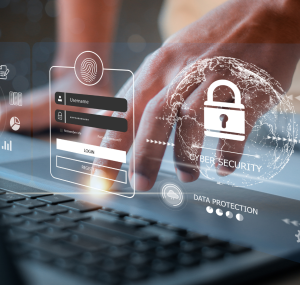 Did you know that one of the most crucial aspects of data safety is often seen as an afterthought? Many individuals, and even companies, are aware of the risks that poor security practices enable. Yet, the effort required to bolster those defenses is always growing, and many believe that the cost is becoming too great. Corners begin to be cut and cracks begin to form allowing easy paths for bad actors to plan and execute attacks which give them access to crucial data and secrets.
Did you know that one of the most crucial aspects of data safety is often seen as an afterthought? Many individuals, and even companies, are aware of the risks that poor security practices enable. Yet, the effort required to bolster those defenses is always growing, and many believe that the cost is becoming too great. Corners begin to be cut and cracks begin to form allowing easy paths for bad actors to plan and execute attacks which give them access to crucial data and secrets.
There’s a prevailing belief that the smartphone is an indispensable tool, given that nearly all the services we use rely on our digital identities for authentication. Smartphones most likely store even more personal and valuable information about us and our habits than any other device we use. From social media and banking to education, the Microsoft Suite, Google services, Internet-of-Things enabled smart homes, and even biometric health data, all of these services (and others) connect and communicate through the internet and create connections back to the individual.
For the Clerk of Courts, cybersecurity is vital due to the sensitive nature of the data handled. Court records, legal documents, and personal information of individuals involved in legal proceedings are all stored and processed within our systems. A breach in security could not only compromise these records but also undermine the integrity of the judicial process.
Therefore, safeguarding both personal and professional data will remain a necessity, especially with numerous bad actors seeking to exploit it for profit or malicious intent. Cybersecurity encompasses the protection of data, as well as the computer systems and networks that store and process data. Cybersecurity serves as an umbrella term covering both the concept of protection and the methods employed. As our society continues to advance and integrate more technology, cybersecurity will only grow in importance, making staying informed a crucial aspect of ensuring your safety.
In any cybersecurity context, the rule of thumb is to strive to be as proactive as possible before you must be reactive. This involves anticipating and guarding against potential attack vectors (tech-speak for attack path or method) to prevent the targeted data from being compromised in the first place. A proactive approach begins with awareness of potential cyber threats and attacks, such as phishing, malware, and data breaches.
Phishing involves fraudulent practices like sending emails or messages pretending to be from reputable sources to coax individuals into revealing personal information like passwords and credit card numbers. It often initiates a three-step process, where an unsuspecting user may unknowingly download and run malware on their device, leading to a data breach and granting the bad actor access.
Regular security training for employees and staying updated on the latest attack methods are proven strategies to reduce the effectiveness of such attacks, as they often look to exploit the human element of computing relationships. However, cybersecurity isn’t a finite problem that can be solved; it’s an ever-evolving challenge. While new barriers are erected, there will always be individuals seeking ways to breach them, making constant vigilance essential.
Having a contingency plan or being prepared to react to existing threats allows for breaches to be contained and minimizes the damage to a system. This could involve knowledgeable employees reporting suspicious emails to cybersecurity experts or individuals promptly changing their account passwords to nullify previously stolen data. Knowing how to respond to an attack is just as, if not more, critical than guarding against it in the first place. Be aware and be ready!

